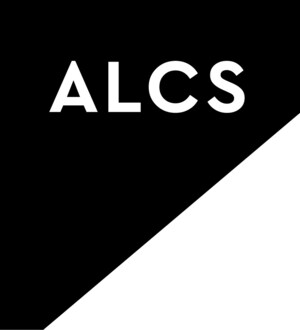Current UK Copyright System Allows Both Innovation and Access
LONDON, March 8, 2011 /PRNewswire/ -- Submissions responding to the government's 'Independent Review of Intellectual Property and Growth' (also known as the Hargreaves Review) were due in last Friday and ALCS' response was submitted against a backdrop of a real success story - the UK creative industries.
The ALCS submission made the case that:
- The success of the UK creative industries is built upon the talent of
creative individuals without which there would be no product to sell.
These individuals need to be supported and incentivised; income from
streams such as ALCS and PLR help to provide incentive and support for
these writers.
- Writers want their works to be read and the UK has developed effective,
low cost licensing solutions that enable access to works which promote
learning and innovation, but also provide adequate incentive for
writers which enable them to keep writing.
- Licensing solutions have evolved to provide flexible access to works
for education and business needs; these solutions continue to be
developed in the current digital use environment. Licenses currently
provided by collective management organisations like ALCS offer
high-volume rights clearance at a single point. This provides
certainty of access while minimising bureaucracy and costs.
The submission included case studies from writers such as Wendy Cope and Philip Pullman who made the case that many writers rely on the payments they receive from secondary uses of their work like the lending of their books in libraries (from Public Lending Right in the UK and from overseas PLR schemes via the Authors' Licensing & Collecting Society), particularly when embarking on a career in writing when they provided welcome incentive.
Renowned children's writer, Philip Pullman says: "I am strongly in favour of secondary payments systems such as Public Lending Right and the Authors' Licensing & Collecting Society. Before I had a bestselling book, the annual payments for the use of my work often made a difference to my ability to continue working in the way I was doing."
Another case study, from writer Mal Peet, voicing his concerns about the American model says: "The PM appears to believe that the American 'fair usage' approach to copyright encourages 'innovation' whereas our system stifles it. Actually, the opposite is true. 'Fair usage' is so nebulous a concept that it occasions incessant litigation. What has happened in the States is that money has been diverted from writers and creators (who need it) into the coffers of lawyers (who don't)."
With the contribution of our core copyright sector to the overall UK economy greater than in the US and anywhere else in Europe, to maintain this sector as a driver of future economic growth government policy must evaluate carefully the role of the current structures that enable innovation.
ALCS
ALCS collects fees on behalf of the whole spectrum of UK writers: novelists, film & TV script writers, literary prize winners, poets and playwrights, freelance journalists, translators and adaptors, as well as thousands of professional and academic writers who include nurses, lawyers, teachers, scientists, and college lecturers. All writers are eligible to join ALCS: further details on membership can be found at http://www.alcs.co.uk
The Society collects fees that are difficult, time-consuming or legally impossible for writers and their representatives to claim on an individual basis: money that is nonetheless due to them. Fees collected are distributed to writers twice a year in March and September. Since its inception, ALCS has distributed over GBP205 million to the nation's writers.
Contact information: ALCS, The Writers' House, 13 Haydon Street, London EC3N 1DB Tel: +44(0)20-7264-5700; email alcs@alcs.co.uk. Website: http://www.alcs.co.uk
Editors Notes
Full Submission details can be found at http://www.alcs.co.uk



Share this article